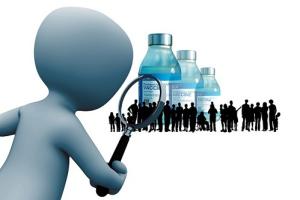Dr. Pedro Gabriel is a Portugese oncologist, a Catholic apologist, and published writer of “Catholic novels with a Tolkienite flavor.” He’s a good friend of mine. We have different opinions about the COVID vaccines. Here is an amiable dialogue on that controversial topic, from my (public) Facebook page. I’m posting it here at Patheos, where there is (blessedly) no censorship, lest Big Brother FascistBook censor it. In the beginning portions, he was responding mostly to others. Then I joined in on the discussion. His words will be in blue.
*****
*
Summary*
In April 2021, increased cases of myocarditis and pericarditis were reported in the United States after mRNA COVID-19 vaccination (Pfizer-BioNTech and Moderna). Data from multiple studies show a rare risk for myocarditis and/or pericarditis following receipt of mRNA COVID-19 vaccines. These rare cases of myocarditis or pericarditis have occurred most frequently in adolescent and young adult males, ages 16 years and older, within 7 days after receiving the second dose of an mRNA COVID-19 vaccine (Pfizer-BioNTech and Moderna). There has not been a similar reporting pattern observed after receipt of the Janssen COVID-19 Vaccine (Johnson & Johnson).
*CDC continues to recommend COVID-19 vaccination for everyone 6 months of age and older. The Advisory Committee on Immunization Practices (ACIP) and CDC have determined that the benefits (such as prevention of COVID-19 cases and its severe outcomes) outweigh the risks of myocarditis and pericarditis after receipt of mRNA COVID-19 vaccines.
*
*
Xue Li, PhD1; Francisco Tsz Tsun Lai, PhD2; Gilbert T. Chua, MBBS3; et alMike Yat Wah Kwan, MSc4; Yu Lung Lau, MD3; Patrick Ip, MPH, MBBS3; Ian Chi Kei Wong, PhD2
*
Cases of myocarditis following the second dose of messenger RNA (mRNA) vaccine are accruing worldwide, especially in younger male adults and adolescents.1-4 In weighing the risk of myocarditis against the benefit of preventing severe COVID-19, Norway, the UK, and Taiwan have suspended the second dose of mRNA vaccine for adolescents. Similarly, adolescents (aged 12-17 years) in Hong Kong have been recommended to receive 1 dose of BNT162b2 instead of 2 doses 21 days apart since September 15, 2021 (Figure).
Christopher L. F. Sun, Eli Jaffe & Retsef Levi
Scientific Reports volume 12, Article number: 6978 (2022)
*
Abstract
*
Cardiovascular adverse conditions are caused by coronavirus disease 2019 (COVID-19) infections and reported as side-effects of the COVID-19 vaccines. Enriching current vaccine safety surveillance systems with additional data sources may improve the understanding of COVID-19 vaccine safety. Using a unique dataset from Israel National Emergency Medical Services (EMS) from 2019 to 2021, the study aims to evaluate the association between the volume of cardiac arrest and acute coronary syndrome EMS calls in the 16–39-year-old population with potential factors including COVID-19 infection and vaccination rates. An increase of over 25% was detected in both call types during January–May 2021, compared with the years 2019–2020. Using Negative Binomial regression models, the weekly emergency call counts were significantly associated with the rates of 1st and 2nd vaccine doses administered to this age group but were not with COVID-19 infection rates. While not establishing causal relationships, the findings raise concerns regarding vaccine-induced undetected severe cardiovascular side-effects and underscore the already established causal relationship between vaccines and myocarditis, a frequent cause of unexpected cardiac arrest in young individuals. Surveillance of potential vaccine side-effects and COVID-19 outcomes should incorporate EMS and other health data to identify public health trends (e.g., increased in EMS calls), and promptly investigate potential underlying causes.*
Introduction*
Cardiovascular adverse outcomes such as blood clotting (e.g., coronary artery thrombosis), acute coronary syndrome, cardiac arrest and myocarditis have been identified as consequences of coronavirus disease 2019 (COVID-19) infection1,2,3,4,5. Similarly, data from regulatory surveillance and self-reporting systems, including the Vaccine Adverse events Reporting System (VAERS) in the United States (US)6, the Yellow Card System in the United Kingdom7 and the EudraVigilance system in Europe8, associate similar cardiovascular side-effects9,10,11,12,13 with a number of COVID-19 vaccines currently in use.
*
More recently, several studies established probable causal relationship between the messenger RNA (mRNA) vaccines of BNT162b2 and mRNA-127311,14,15,16 as well as adenovirus (ChAdOx1) vaccines17 with myocarditis, primarily in children, young and middle-age adults.
*
Anders Husby, Lars Køber
Published: June 11, 2022 DOI: https://doi.org/10.1016/S0140-6736(22)00842-X
*
In April, 2021, international news media first reported rare cases of young men in Israel who had developed myocarditis shortly after vaccination with the Pfizer-BioNTech mRNA vaccine against SARS-CoV-2.1 Since then, many observational studies from Asia,2 Europe,3, 4, 5 the Middle East,6, 7 and North America8, 9 have found COVID-19 mRNA vaccination to be associated with a short-term increased risk of myocarditis. Furthermore, this association has been established using multiple types of analysis, including comparisons of observed-to-expected rates,6, 8, 9 case-control studies,2 self-controlled cases series,3, 4 and cohort studies.4, 5, 7
*
In The Lancet, Hui-Lee Wong and colleagues10 robustly replicate the previous findings using large-scale US health plan claims data. Notably, the new study uses data from four health plan databases, covering more than 100 million individuals. Of these, 15 148 369 were aged 18–64 years and registered to have received a COVID-19 mRNA vaccine (53·1% male and 13·0% aged 18–25 years). Similar to previous studies, Wong and colleagues10 observed higher than expected rates of myocarditis (and pericarditis, a closely related clinical presentation), specifically in individuals younger than 35 years, with the highest risk among men aged 18–25 years after their second COVID-19 mRNA vaccine dose. The absolute risk of myocarditis or pericarditis, calculated as the incidence rate within 1–7 days of vaccination, for men aged 18–25 years after a second vaccination dose was 2·17 (95% CI 1·55–3·04) cases per 100 000 person-days for the Moderna vaccine, mRNA-1273, and 1·71 (1·31–2·23) cases per 100 000 person-days for the Pfizer-BioNTech vaccine, BNT162b2. Furthermore, the study supports the previous finding that the association is principally short term. The data indicate that this adverse event primarily occurs within 1–7 days of vaccination, because a longer duration of follow-up attenuated the association. Although not significantly different, the study found a tendency towards a higher risk of myocarditis after vaccination with mRNA-1273 in a head-to-head comparison with BNT162b2 (with an adjusted incidence rate ratio of 1·43 [95% CI 0·88–2·34] among men aged 18–25 years). Similar findings of a more pronounced risk of myocarditis after mRNA-1273 in comparison with BNT162b2 have been observed in other large observational studies.3–5,9
*
[12 other relevant articles cited by this one]*
*
*
*
*
many observational studies from Asia,2 Europe,3, 4, 5 the Middle East,6, 7 and North America8, 9 have found COVID-19 mRNA vaccination to be associated with a short-term increased risk of myocarditis. Furthermore, this association has been established using multiple types of analysis, including comparisons of observed-to-expected rates,6, 8, 9 case-control studies,2 self-controlled cases series,3, 4 and cohort studies.4, 5, 7
*
*
BMJ 2021; 375 doi: https://doi.org/10.1136/bmj-2021-068665 (Published 16 December 2021)
*
Design Population based cohort study.
*
Setting: Denmark.*
Participants 4 931 775 individuals aged 12 years or older, followed from 1 October 2020 to 5 October 2021.*
Main outcome measures The primary outcome, myocarditis or myopericarditis, was defined as a combination of a hospital diagnosis of myocarditis or pericarditis, increased troponin levels, and a hospital stay lasting more than 24 hours. Follow-up time before vaccination was compared with follow-up time 0-28 days from the day of vaccination for both first and second doses, using Cox proportional hazards regression with age as an underlying timescale to estimate hazard ratios adjusted for sex, comorbidities, and other potential confounders.*
Results*
During follow-up, 269 participants developed myocarditis or myopericarditis, of whom 108 (40%) were 12-39 years old and 196 (73%) were male. Of 3 482 295 individuals vaccinated with BNT162b2 (Pfizer-BioNTech), 48 developed myocarditis or myopericarditis within 28 days from the vaccination date compared with unvaccinated individuals (adjusted hazard ratio 1.34 (95% confidence interval 0.90 to 2.00); absolute rate 1.4 per 100 000 vaccinated individuals within 28 days of vaccination (95% confidence interval 1.0 to 1.8)). Adjusted hazard ratios among female participants only and male participants only were 3.73 (1.82 to 7.65) and 0.82 (0.50 to 1.34), respectively, with corresponding absolute rates of 1.3 (0.8 to 1.9) and 1.5 (1.0 to 2.2) per 100 000 vaccinated individuals within 28 days of vaccination, respectively. The adjusted hazard ratio among 12-39 year olds was 1.48 (0.74 to 2.98) and the absolute rate was 1.6 (1.0 to 2.6) per 100 000 vaccinated individuals within 28 days of vaccination. Among 498 814 individuals vaccinated with mRNA-1273 (Moderna), 21 developed myocarditis or myopericarditis within 28 days from vaccination date (adjusted hazard ratio 3.92 (2.30 to 6.68); absolute rate 4.2 per 100 000 vaccinated individuals within 28 days of vaccination (2.6 to 6.4)). Adjusted hazard ratios among women only and men only were 6.33 (2.11 to 18.96) and 3.22 (1.75 to 5.93), respectively, with corresponding absolute rates of 2.0 (0.7 to 4.8 ) and 6.3 (3.6 to 10.2) per 100 000 vaccinated individuals within 28 days of vaccination, respectively. The adjusted hazard ratio among 12-39 year olds was 5.24 (2.47 to 11.12) and the absolute rate was 5.7 (3.3 to 9.3) per 100 000 vaccinated individuals within 28 days of vaccination.*Conclusions
Vaccination with mRNA-1273 was associated with a significantly increased risk of myocarditis or myopericarditis in the Danish population, primarily driven by an increased risk among individuals aged 12-39 years, while BNT162b2 vaccination was only associated with a significantly increased risk among women. However, the absolute rate of myocarditis or myopericarditis after SARS-CoV-2 mRNA vaccination was low, even in younger age groups. The benefits of SARS-CoV-2 mRNA vaccination should be taken into account when interpreting these findings. Larger multinational studies are needed to further investigate the risks of myocarditis or myopericarditis after vaccination within smaller subgroups.
*
*
*
And it remains true that I as an individual have a right and the God-given freedom to determine to the best of my ability the risks involved in receiving any given vaccine and to determine whether it is advisable in my own case. I decided that I have no need for this vaccine, because I have a very strong immune system (that managed to eliminate Lyme Disease in the last year as well). Our entire family contracted COVID and we’re doing fine. The worst continuing symptom as a result — between all of us — is a degree of lack of smell and taste in my wife, and even that is slowly improving day-by-day. She just told me at a restaurant last night that she could taste her ham-and-cheese sandwich, whereas not long ago, she couldn’t. Praise God for our immune systems!
Out of my wife and I, four children, and two daughters-in-law, no one was vaccinated, save for one daughter-in-law. She obtained COVID pretty badly, anyway, while her husband did not (the only one who didn’t get it in our family).
If we look at our extended family on my wife’s side, the very worst case of COVID (hospitalization for several weeks with serious symptoms) was my wife’s sister: precisely the person in the family who is most “fanatical” about the vaccines. Why? I would say it may be because she is quite overweight.
I think we can say by now that virtually “everyone” gets COVID, whether vaccinated or not.
That said, I have never told anyone that they must not receive a vaccination. I have maintained all along that it has saved many lives, and should be taken by the elderly and those with serious medical conditions. I’m not a fanatic or conspiratorialist about this. I am a rational agent who studies issues and makes rational determinations, just as I do concerning anything else: including my field of apologetics. I’m writing about this today because I’m concerned that people receive accurate information as to the risks of any given medical treatment before they decide to receive it. That is reason; that is a scientific approach and a concern for the rights of individuals to have full information on medical treatments.
My upcoming book employs scientific method in the service of the accuracy of the Bible. I deal with archaeology and many other sciences in the book.
*
Dialogue with Dr. Pedro Gabriel on COVID Vaccines, Heart Problems, Social Media Groups Devoted to “Vaccine Horror Stories” & the Ability of Non-Doctors & Non-Scientists to Arrive at True Conclusions Through Reason (Which Shouldn’t be Censored!) [Facebook, 12-8-22]
*
***
Practical Matters: Perhaps some of my 4,000+ free online articles (the most comprehensive “one-stop” Catholic apologetics site) or fifty books have helped you (by God’s grace) to decide to become Catholic or to return to the Church, or better understand some doctrines and why we believe them.
Or you may believe my work is worthy to support for the purpose of apologetics and evangelism in general. If so, please seriously consider a much-needed financial contribution. I’m always in need of more funds: especially monthly support. “The laborer is worthy of his wages” (1 Tim 5:18, NKJV). 1 December 2021 was my 20th anniversary as a full-time Catholic apologist, and February 2022 marked the 25th anniversary of my blog.
PayPal donations are the easiest: just send to my email address: [email protected]. You’ll see the term “Catholic Used Book Service”, which is my old side-business. To learn about the different methods of contributing, including 100% tax deduction, etc., see my page: About Catholic Apologist Dave Armstrong / Donation Information. Thanks a million from the bottom of my heart!
***
Photo credit: geralt (4-15-21) [Pixabay / Pixabay License]
***
Summary: Great dialogue with Dr. Pedro Gabriel, a Portugese oncologist, about possible risks of increased heart ailments as a result of COVID vaccines (especially repeated doses).














